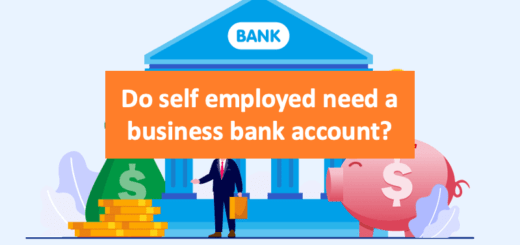PayPal vs Merchant Account: Which one should you use for your business?
Table of Contents
As a small business owner, it’s important to consider the costs and benefits of different payment processing options. Two popular options are merchant accounts and PayPal. Let’s compare the price of these two options to help you make an informed decision.
What is PayPal vs what is a merchant account?
First let’s start with the basics. First, we are going to clarify what is PayPal vs what is a Merchant Account in the context of a small business. However, if you are already familiar with these two services please jump ahead to get into the more detailed comparison, including things such as pricing and pros vs cons of each service.
PayPal and a merchant account are both ways for businesses to accept payments via cards (such as credit cards or debit cards; Visa, Mastercard, American Express, etc.) from customers, but they work in slightly different ways.
PayPal is an online payment system that allows businesses and individuals to send and receive payments electronically. Users can link their PayPal account to a credit card or bank account and use it to make purchases online or transfer money to other users. PayPal also offers additional features such as invoicing, subscription billing, and fraud protection. It is a popular payment option for small businesses and individual sellers.
A merchant account, on the other hand, is a type of bank account that allows businesses to accept credit and debit card payments. Merchant accounts are typically set up through a bank or other financial institution, and businesses must meet certain requirements to qualify for an account. Merchant accounts are used by businesses of all sizes, from small local shops to large corporations. They allow businesses to accept a wide range of payment methods, including credit and debit cards, electronic checks, and mobile payments.
While both PayPal and merchant accounts allow businesses to accept payments, there are some key differences between them. PayPal is a third-party payment processor, which means that it handles the transaction on behalf of the business. Merchant accounts, on the other hand, are typically set up directly with a bank or financial institution, and businesses are responsible for processing the payments themselves. Additionally, PayPal is a popular option for small businesses and individuals, while larger businesses may prefer the flexibility and customization options offered by a merchant account.
Merchant Accounts
Pros
- Can accept credit and debit card payments
- May offer lower transaction fees for high-volume businesses
- Can offer more customization and integration options for businesses
Cons
- Typically requires a setup fee, monthly fee, and per-transaction fee
- May charge additional fees for chargebacks or refunds
- May require a long-term contract or commitment
PayPal
Pros
- Easy to set up and use
- No long-term commitment required
- Can accept payments from customers with PayPal accounts or credit/debit cards
Cons
- Transaction fees can be higher than merchant accounts for high-volume businesses
- Limited customization and integration options for businesses
- Some customers may not have a PayPal account or be hesitant to use it
Now, let’s compare the costs of these two options:
Merchant Accounts
- Setup fee: $0-$200
- Monthly fee: $5-$50
- Per-transaction fee: 1.5%-3.5% + $0.15-$0.30
PayPal
- Setup fee: $0
- Monthly fee: $0
- Per-transaction fee: 2.9% + $0.30
So, which option is cheaper for your small business?
It depends on a variety of factors, including the volume of transactions your business processes each month and the average transaction amount. In general, if your business processes a high volume of transactions or large transaction amounts, a merchant account may be more cost-effective. However, if your business processes a lower volume of transactions or smaller transaction amounts, PayPal may be a more affordable option.
Another factor to consider is the ease of use and convenience of each option. PayPal is a popular choice for small businesses because it’s easy to set up and use, and it doesn’t require a long-term commitment. Merchant accounts, on the other hand, can be more complicated to set up and may require a contract or commitment.
Comparison summary
The main advantage of using a merchant account over PayPal is that it typically offers lower transaction fees. Merchant accounts also generally offer more customization options and more control over the payment process. They also typically offer more payment options, such as the ability to accept credit cards, debit cards, and checks. Additionally, merchant accounts are more secure than PayPal, as they provide more fraud protection and data security.
What are some customization options that merchant accounts offer?
Merchant accounts typically offer customization options such as the ability to customize the checkout page and the payment process. They also typically offer the ability to customize payment options, such as the ability to accept multiple currencies, set up recurring payments, and offer discounts and promotions. Additionally, merchant accounts often offer the ability to set up automatic payments, and to integrate with third-party payment processors and shopping cart software.
What are some third-party payment processors that merchant accounts can integrate with?
Merchant accounts can integrate with a variety of third-party payment processors, including Stripe, Square, Braintree, Authorize.net, and PayPal. They can also integrate with shopping cart software, such as Shopify, Magento, and WooCommerce. Additionally, merchant accounts can integrate with accounting software, such as QuickBooks and Xero.
Conclusion
Ultimately, the decision of whether to use a merchant account or PayPal will depend on your individual business needs and preferences. It’s important to carefully consider the costs and benefits of each option before making a decision.
Was this article helpful?
We are a team of writers and contributors with a passion for creating valuable content for small business owners, self-employed, entrepreneurs, and more.
Feel free to reach out to use as support@falconexpenses.com





